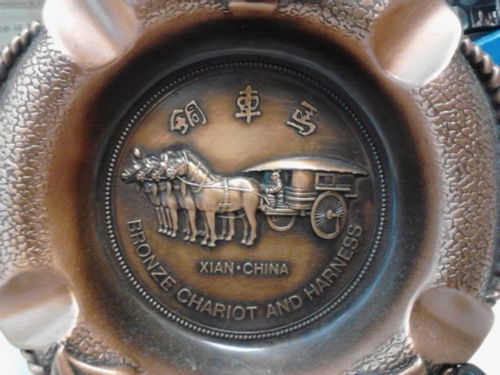
Market Watch columnist Brett Arends wrote that China has surpassed America as the number one economy, a move he claims may lead to a collapse of U.S. political and military hegemony. But does China truly have the strongest economy in the world?
There's no easy way to say this, so I'll just say it: We're no longer No. 1. Today, we're No. 2. Yes, it's official. The Chinese economy just overtook the United States economy to become the largest in the world. For the first time since Ulysses S. Grant was president, America is not the leading economic power on the planet.
The International Monetary Fund recently released the latest numbers for the world economy. And when you measure national economic output in "real" terms of goods and services, China will this year produce $17.6 trillion -- compared with $17.4 trillion for the U.S.A.
To put the numbers slightly differently, China now accounts for 16.5% of the global economy when measured in real purchasing-power terms, compared with 16.3% for the U.S.
Yes, all statistics are open to various quibbles. It is perfectly possible China's latest numbers overstate output -- or understate them. That may also be true of U.S. GDP figures. But the IMF data are the best we have.
Arends does note that when you look at international exchange rates, the U.S. economy is 70 percent bigger, but claims that is meaningless. A lot of that is because the Chinese currency is so much lower in value, which speaks to the value of the dollar, as well as the Chinese desire to have a cheap currency in order to export more. Dumping your dollars for the renminbi (yuan) on the basis of this article might be a mistake, in other words.
But gross domestic product (GDP) isn't the only economic measure. If you look a little further at that same International Monetary Fund (IMF) report and PPP data, you'll find that China's GDP per capita is $11,868, putting it 89th on the list of 187 countries, behind the Dominican Republic, Serbia, South Africa and Turkmenistan. The USA is tenth on that same list (behind some oil rich emirates, some entrepots and a few European countries like Luxembourg, Norway and Switzerland). Its GDP per capita is $53,001.
Don't like the IMF data? The World Bank puts China in the same spot, while the CIA ranks China 97th in GDP per capita out of 195 countries, behind Tunisia, Thailand and Cuba.
Arrends still believes this still foretells China's political and military hegemony and the end of the United States.
Make no mistake: This is a geopolitical earthquake with a high reading on the Richter scale. Throughout history, political and military power have always depended on economic power. Britain was the workshop of the world before she ruled the waves. And it was Britain's relative economic decline that preceded the collapse of her power. And it was a similar story with previous hegemonic powers such as France and Spain.
We have lived in a world dominated by the U.S. since at least 1945 and, in many ways, since the late 19th century. And we have lived for 200 years -- since the Battle of Waterloo in 1815 -- in a world dominated by two reasonably democratic, constitutional countries in Great Britain and the U.S.A.
But if the Americans have had the largest economy since the 1870s, why wasn't it the hegemonic power until 1945? For years, we've been treated to tales of the Soviet Union's growing supremacy over the USA, the European Union surpassing the United States, or how Japan would overtake the American economy. Perhaps China might be the first to make this a reality. But their incredibly weak GDP per capita shows that this Asiatic power still has a lot of growing left to do before it can knock the Americans from power.
John A. Tures is a professor of political science at LaGrange College in LaGrange, Ga. He can be reached at jtures@lagrange.edu.

